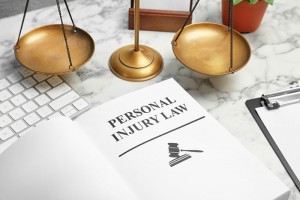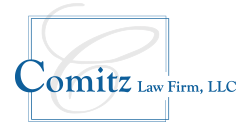 Tort. The term derives from the Latin, tortum, meaning “something twisted, or crooked.” If someone has wronged you, tort law might provide a way to set things straight.
Tort. The term derives from the Latin, tortum, meaning “something twisted, or crooked.” If someone has wronged you, tort law might provide a way to set things straight.
A tort is a civil wrong that causes a claimant to suffer loss or harm, resulting in legal liability for the tortfeasor – the person who commits the tortious act. The wrongs can result in physical injuries, psychological injuries, financial losses, or property damage. Every personal injury lawsuit involves a tort.
The primary aims of tort law are to provide relief to injured parties for harms caused by others, to impose liability on parties responsible for the harm, and to deter others from committing harmful acts. Typically, a party seeking redress through tort law will ask for damages in the form of monetary compensation.
Attorney Jonathan Comitz and his legal team use their knowledge and experience to help right the wrongs suffered by plaintiffs.
Tort Law versus Criminal Law
Tort law can be contrasted with criminal law, which deals with criminal transgressions that are punishable by the state. While criminal law punishes individuals who commit crimes, tort law compensates individuals who suffer harm as a result of the actions of others.
Tort Law versus Contract Law
In tort law, the duties of the parties are fixed by law. In contract law, the duties and rights of the parties are set by the parties themselves. Breaching a contract is not a tort even though both tort law and contract law are branches of civil law.
Categories of Torts
Torts fall into three general categories: intentional torts; negligence and strict liability.
Intentional torts are wrongs that the defendant knew or should have known would result through his or her actions or omissions. Someone could commit an intentional tort even if they didn’t necessarily intend to cause harm. If they took action on purpose, they might be liable. Common intentional torts include battery, assault, and fraud, to name just a few. Unlike other jurisdictions, Pennsylvania continues to treat a claim for informed consent as one sounding in battery, i.e., as an intentional tort. Lawsuits based on a failure to obtain consent are not considered medical malpractice cases, but rather as unwarranted or unwanted forms of touching. Generally, physical injuries are not required to secure compensation; the unwarranted touching is the violation.
Intentional torts may involve behavior that is also considered criminal. Such is the case with assault and battery. In a criminal case, a defendant cannot be convicted unless guilt is proven beyond a reasonable doubt. In a civil case, the burden of proof is lower and generally plaintiffs only need to prove their case by a preponderance of the evidence, which means “more likely than not”.
Negligence occurs when someone fails to live up to a social duty to act with reasonable care toward other people. Generally speaking, someone is considered negligent if a reasonable person in the same situation would have acted more carefully. Negligence cases arise in many different situations, such as motor vehicle accidents, slip-and-falls, and medical malpractice.
To prevail in a negligence case, the plaintiff must prove that:
- the defendant was bound by a duty or standard of care
- the defendant breached that duty or failed to exercise reasonable care
- the breach was the direct cause of the plaintiff’s injuries or harm
- the plaintiff suffered losses as a result of the defendant’s action or failure to act
No cause of action in negligence is recognized if any of these elements are absent from the case.
Strict liability does not depend on the degree of care that the defendant used. Rather it holds people responsible for certain kinds of actions that cause harm, even if they did not act intentionally or carelessly. Typically the law may impose strict liability in cases involving hazardous activities, dangerous animals, and defective products.
If you believe that you may have been the victim of a tort, call Comitz Law at 570-829-1111 or email info@comitzlaw.com.


